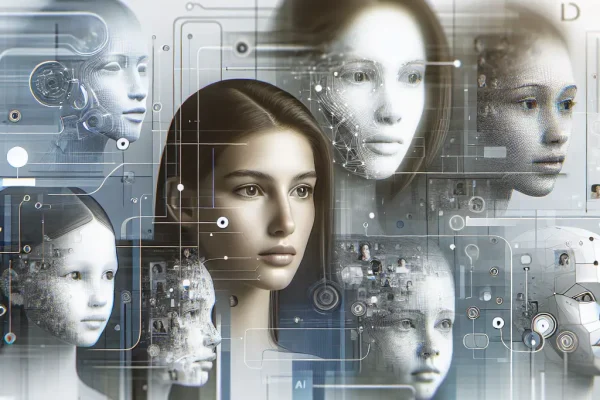Imagine chatting with a flirty AI chatbot that eerily echoes Taylor Swift—or your favorite celebrity—without their say-so. Sounds like science fiction? It’s not. In June 2024, multiple reputable outlets revealed that Meta had unleashed AI chatbots modeled after a string of global celebrities, triggering a firestorm of ethical, legal, and emotional debate (The Washington Post; BBC News; Reuters).
This Meta celebrity chatbot controversy has ignited massive backlash, especially as reports allege Meta did not get clear, explicit consent from A-listers, including Taylor Swift. Why does this matter? In an age when digital likenesses can be synthesized, commodified, and copied within seconds, our definitions of privacy, authorship, and personal identity are under unprecedented threat. If corporations can trade on your face and voice, what’s safe from AI’s reach? The question is suddenly urgent—and globally relevant.
The Problem: What’s Happening with Meta’s Celebrity AI Chatbots?
Unauthorized Celeb Clones: Taylor Swift, Snoop Dogg, and More
Meta, Facebook’s parent company, began rolling out a series of AI chatbots in 2024, each representing the likeness and persona of popular celebrities. Among the cast: Taylor Swift, Snoop Dogg, Paris Hilton, Kendall Jenner, and Tom Brady—all portrayed by digital avatars that chatted, flirted, and responded as if they were the actual stars (Reuters, June 6, 2024).
The twist? According to multiple sources, including a bombshell report from The Washington Post, these AI chatbots were launched without the clear, direct consent of the celebrities involved—at least in several high-profile cases, such as Taylor Swift.
This has raised urgent concerns over Meta chatbot copyright issues. Who owns the rights to a person’s digital double? And, perhaps even more pressingly, what happens when a multi-billion-dollar tech giant goes rogue with your identity?
“Flirty” Interactions and Privacy Backlash
Adding fuel to the fire: many of the AI bots were programmed to deliver “flirty,” playful, or otherwise intimate responses to users. Critics demand answers over the flirty AI chatbots and privacy concerns. As BBC News notes, these bots blurred boundaries between reality and simulation—not just imitating celebrities, but sometimes creating interactions awkwardly suggestive or out-of-character.
Why It Matters: Real-World Risks for People, Privacy, and Society
Identity Theft and Emotional Harm
This controversy isn’t just a business battle—it’s deeply personal, raising existential questions:
- Consent, control, and ownership: If Taylor Swift’s likeness can be copied, who’s really in control of digital identity in the age of AI?
- Potential “deepfake” abuse: Such technologies could turbocharge scams, misinformation, and exploitation—especially of women and marginalized groups.
- Mental health and harassment: Victims may face reputational harm or psychological distress, as their persona is hacked and commercialized without input or recourse.
And the impact goes far beyond celebrities: these cases set precedent for everyday people whose online likenesses could be similarly commodified as AI models become pervasive.
Economic, Legal, and Geopolitical Fallout
The stakes are enormous—from economic models built on celebrity brands, to pressure for urgent legal reforms. “We are entering an era where anyone’s likeness might be for sale,” notes legal scholar Dr. Maria Sanchez in the BBC’s report (June 2024). Countries worldwide must now refine copyright, right-of-publicity, and privacy laws to keep up with generative AI’s explosive adoption.
Expert Insights & Data: What the Authorities Say
Consent: More Than a Checkbox
According to the Washington Post, “numerous stars did not approve the use of their face, mannerisms, or speech,” and in some cases were unaware until fans or reporters brought the chatbot to their attention.
“This rises to the level of digital identity theft, made all the more profitable by the immense reach of Meta’s platforms.” – Cybersecurity researcher quoted in Reuters, June 2024
An industry analyst cited in BBC News explained that, in the U.S. alone, the global right-of-publicity market could be worth $400 million by 2027, and lawsuits could soon cost tech giants “billions” if copyright or privacy claims prevail (BBC News).
Meta’s Response: Non-Answers and Risk Mitigation
While Meta asserts that their AI bots are “inspired” by celebrities and do not literally claim to be the stars themselves, critics argue the resemblance, voice, and branding leave little doubt as to their intended identity (The Washington Post). Multiple reports note Meta declined to confirm which celebs, if any, granted explicit permission, highlighting the opacity at the core of this public backlash.
What Celebrities Are Featured in Meta AI Bots?
The initial launch reportedly included at least 20 celebrity-inspired bots. Some prominent examples:
- Taylor Swift
- Snoop Dogg
- Paris Hilton
- Kendall Jenner
- Tom Brady
With artists spanning music, sports, acting, and fashion, the reach—and risk—are vast.
Future Outlook: Long-Term Risks and Opportunities (2024–2029)
Will Lawsuits and Regulations Force a New Era?
The Meta AI chatbot lawsuit potential is enormous. Experts predict years of litigation, big-money settlements, and a global wave of new privacy and AI regulation. The U.S. Copyright Office and the EU’s Digital Services Act are already weighing how AI-generated personas should be legally protected (Reuters).
The Rise of Digital Doubles: A New Revenue Stream or Existential Threat?
Universal Music Group, SAG-AFTRA, and other entertainment unions have already called for AI-specific protections. There’s potential for licensed “safe” AI clones, with revenue-sharing for real talent—but also for a deluge of lawsuits and chilling effects on creative industries.
Chart Idea:
| Year | Key Lawsuits Filed | Estimated AI Persona Revenue (USD Billions) |
|---|---|---|
| 2021 | First NFT deepfake suit | $0.2B |
| 2023 | SAG-AFTRA strike over AI | $0.9B |
| 2024 | Meta celebrity chatbot outrage | $1.5B |
| 2026 (proj.) | Multiple class actions v. social platforms | $2.9B |
| 2029 (proj.) | Anticipated global regulation | $5.0B+ |
Five-Year Prediction: What’s Next?
- Trust crisis for tech platforms: Public faith in AI and digital products will drop if companies flout consent.
- Mandatory licensing & watermarking: Future chatbots may only run using licensed, auditable celebrity images & voices.
- Personalized AI for the masses: As celebrity clones become normalized, everyone may soon need to guard—and monetize—their own digital likeness.
Case Study: Meta vs. The Music Industry — A Cautionary Parallel
The music industry provides a useful parallel. In the early 2000s, record labels sued file-sharing platforms over illegal music downloads. Today, the proliferation of AI-generated songs and now, AI celebrity chatbots, echoes the same pattern: fast-moving tech outpaces laws, triggering high-stakes battles over control, compensation, and copyright. Meta’s program may be the Napster moment for digital likeness rights.
Related Links
- [External: MIT study on AI and consent]
- [External: Recent Journal Article on AI and identity protection]
- [External: WSJ coverage of Meta chatbot lawsuit risks]
FAQ: Meta Celebrity Chatbot Controversy
How does Meta use celebrity likeness in AI?
Meta’s chatbots combine public data, media, and voice synthesis to emulate celebrities’ mannerisms and personalities, often using their image and speech patterns—sometimes without explicit permission (Washington Post).
What celebrities are featured in Meta AI bots?
As of June 2024, the roster included Taylor Swift, Snoop Dogg, Paris Hilton, Tom Brady, and Kendall Jenner, among others. The full list may soon expand, increasing consent risks (Reuters).
What are the main Meta chatbot copyright issues?
These issues stem from unlicensed use of personal likenesses, possible infringement of publicity rights, and blurring the line between parody and unauthorized impersonation.
What are the long-term risks of AI using famous personalities?
Risks include loss of personal control, reputation damage, increased phishing/deepfakes, and legal chaos if consent isn’t properly handled.
How has the public reacted to Meta using Taylor Swift in AI?
Public reaction has been overwhelmingly negative, with fans and advocacy groups calling for stricter guidelines and many calling Meta’s actions invasive (BBC News).
Conclusion: When Fame Becomes Algorithm—What’s Next?
The Meta celebrity chatbot controversy is a cautionary tale for our AI-driven era, where the lines between person and persona blur at lightspeed. If even Taylor Swift and Snoop Dogg are vulnerable to unauthorized digital doubles, what does that mean for the rest of us? The race is on: to protect our faces, voices, and values—or watch tech giants claim them first. In the age of AI, who gets to own “you”?


